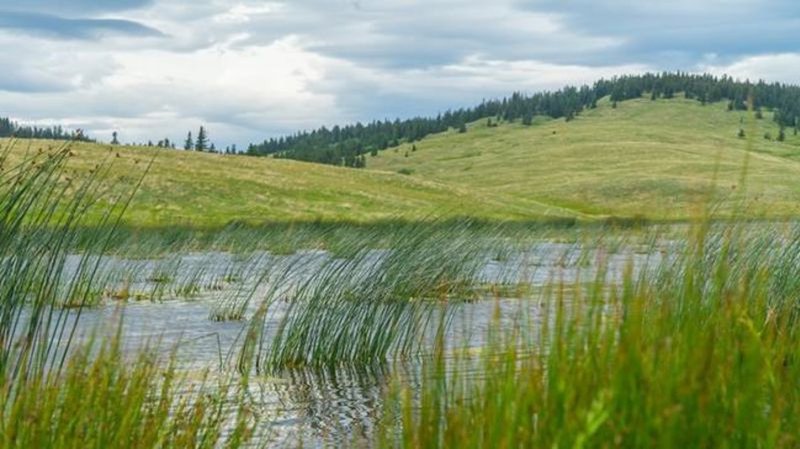
Protection coming for large tract of threatened grassland south of Kamloops, B.C.
VANCOUVER — More than 60 square kilometres of at-risk grassland in British Columbia’s southern Interior will be protected forever as part of the newest conservation project in the province.
The Nature Conservancy of Canada says preserving the grasslands, known as Bunchgrass Hills, south of Kamloops, secures vital habitat and safe pathways for dozens of species living in the Thompson-Nicola region.
Several of those are listed as threatened, including the great basin spadefoot toad and great basin gopher snake, as well as the American badger and Lewis’s woodpecker.
The grasslands were once part of the 140-year-old Stump Lake Cattle Ranch and will still support sustainable cattle grazing, but the nature conservancy says the land will be managed for conservation, making Bunchgrass Hills the organization’s fourth collaboration with conservation-minded ranchers.


